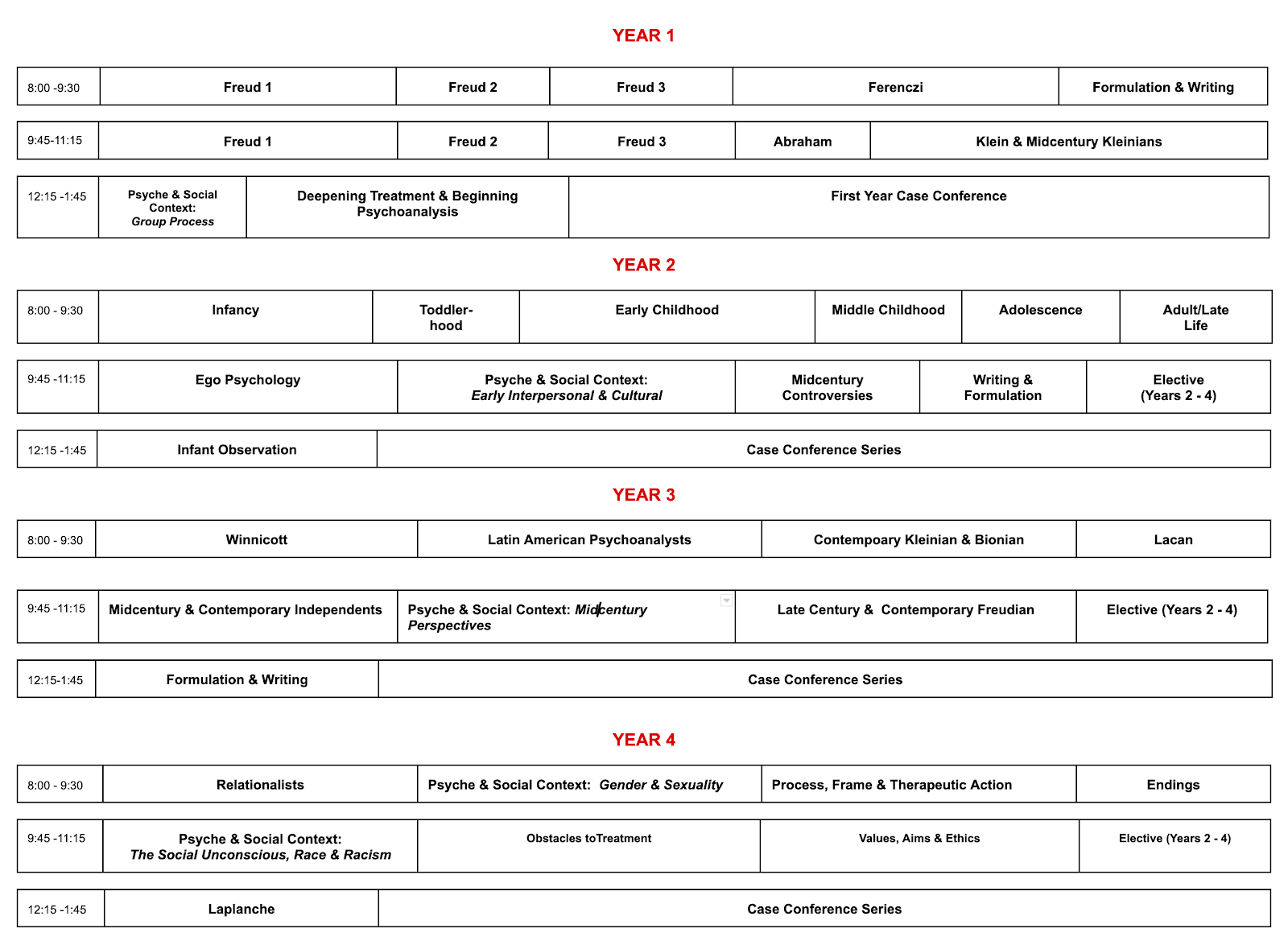Curriculum
For questions about any aspect of the Curriculum component of psychoanalytic training, please contact Curriculum Chair Maria Longuemare, MD (marialonguemaremd@gmail.com).
The Adult Psychoanalytic Training Curriculum consists of four years of seminars and case conferences. Classes are held 34 Fridays per year at SFCP in San Francisco, with each Friday divided into three 90-minute classes: 8:00-9:30 a.m., 9:45-11:15 a.m., and 12:15-1:45 p.m. (SFCP’s in-person attendance policy is described in the SFCP Candidate Handbook.) Coursework is conceptualized as a group experience that supports each candidate’s unique development as a psychoanalyst. Elements of this group experience include:
- a focus on what it means to think and work psychoanalytically, with close attention to the understanding of personal unconscious experience and how this relates to the unconscious experiences of groups, societies, and cultures.
- an intensive, chronologically-organized sequence of courses on seminal psychoanalytic writings, with a focus on fundamental questions in the psychoanalytic conversation and an effort to trace the development of this conversation within the historical context in which it evolved (in Years 1-3).
- a course sequence on Psyche and Social Context which runs throughout the four-year curriculum and focuses on the intersection between intrapsychic, inter-psychic, and collective dimensions of psychic experience and functioning.
- a year of coursework (Year 2) on psychoanalytic views of development, conceptualized and taught in close coordination with SFCP’s Child and Adolescent Psychoanalytic Training Program.
- a year of coursework (Year 4) focusing on the lived clinical experience, offering candidates the opportunity to integrate their learning from prior coursework and casework to refine their own clinical sensibility.
- opportunities for each candidate to develop their psychoanalytic thinking and voice by writing and sharing writing in a group setting.
- immersion in group study of psychoanalytic clinical process, organized around candidate presentations in clinical case conferences.
- Reflection Groups scheduled throughout each training year to provide opportunities for candidates to reflect together within their cohorts on the social, emotional, and group aspects of learning together, and on ways in which psychoanalytic training is impacting their identity, their clinical work, and their perspectives on the wider society.
The Curriculum Plan below will give you an overview of candidate coursework over the four years of training. The 20-minute video linked here was created as an orientation for candidates entering training in Fall 2022 and offers a sense of how the curriculum is currently conceptualized. (Note: The curriculum is subject to revision in future years.)
CLICK TO ENLARGE:

Graduation Paper Writing Workshop (post-seminar)
This workshop is designed to support candidates in writing their Graduation Paper by studying the literature on psychoanalytic writing and sharing drafts of the graduation paper with the group for feedback. Following the four years of seminars, this workshop meets once per month for 8 months on a weeknight or weekend day determined by the instructor and the group. Candidates may choose to take it at any time during their fourth year of candidacy or during post-seminar year(s).
